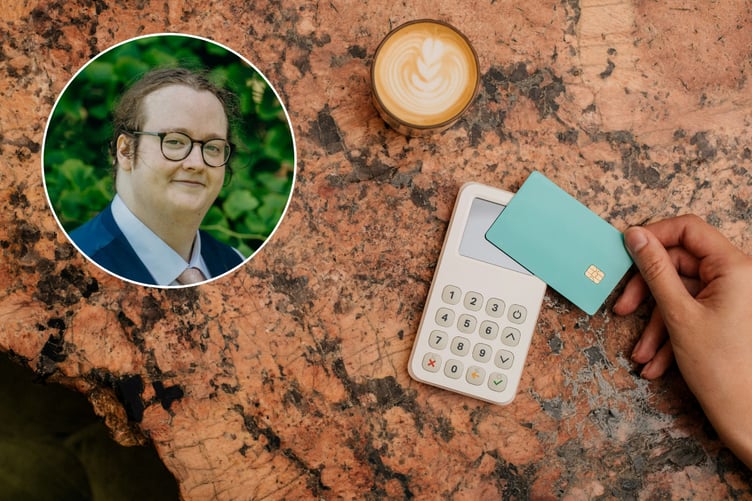LAST week, I had the chance to visit London for a nice bank holiday weekend away. However, following a bit of a rush to get going on time for our train, we’d reached the station only to realise that I’d forgotten my wallet.
Now, with plans to enjoy a bit of retail therapy during our trip, this could have put a spanner in the works, however, thanks to the marvel of modern technology, my phone was all I needed.
My train ticket, a variety of payment cards, my rail card and even our tickets to the theatre were all neatly stored within my mobile, ready to be tapped and scanned as needed.
Somehow the experience made me feel lighter than usual, no need to worry about more than one item on my person. No fretting about if I’d dropped my wallet, or which pocket I’d put it in, it was just me and my phone!
However, while enjoying my newfound freedom, I was reminded of a recent discussion I had with some friends about whether we should reduce our card spending in favour of more traditional cash options.
Recently, it seems as though there has been much discussion about whether shoppers should be cutting back on how much they use their credit cards, instead opting for old fashioned physical tender.
This seems particularly rife on social media – as many things are – with the phrase ‘cash is king’ being bandied around.
One post which has gone viral is an image of a chalkboard sat at on a bar, brandishing the statement: ‘Please use cash if you can. Last week our card machine charges were equal to a day’s wages for a member of our team’.
These discussions – or sometimes arguments – centre around whether using cash is more supportive of businesses, providing no immediate costs, unlike card machines.
However, is it really true that cash is king?
The core of the conversation comes from the inbuilt cost of card machines. Businesses using the machines, which allow them to take card payments, will have to pay a small commission on each purchase which is made.
This can come in the form of a percentage of the payment to the machine provider or a monthly fee.
It might seem, at face value, that this is a very poor deal. Why pay for the privilege to earn money when someone can put cash into your till for free? The money straight into your hands without the need for a middleman.
Well, cash might look free but there are plenty of costs that come with it. Higher insurance to store funds on-site, possible collection costs, the price of depositing into a bank account.
Cash also comes at a cost to convenience, it takes time to deposit cash, along with counting it, storing it and providing change.
Ultimately, the choice is personal preference, but I wonder if we might see a resurgence of cash use.
What do you think? Is cash king? or are cards the way forward?





Comments
This article has no comments yet. Be the first to leave a comment.